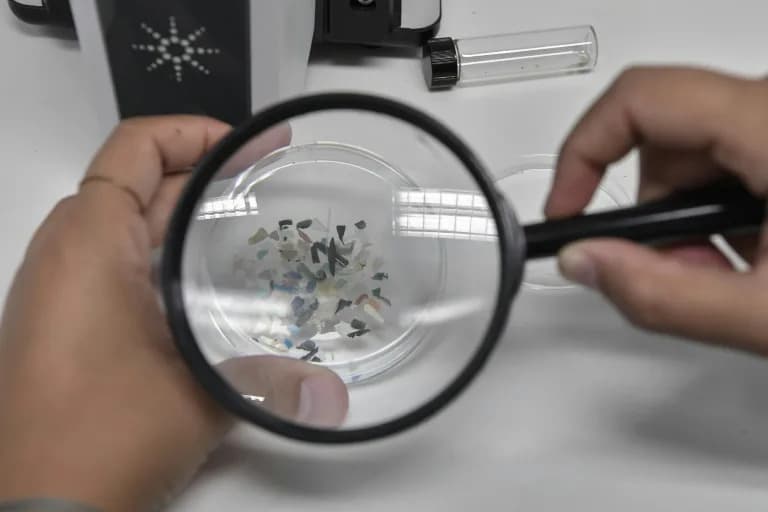Researchers presenting at UEG Week 2025 report that exposing stool-derived gut microbiome cultures from five healthy volunteers to common microplastics (polystyrene, polypropylene, LDPE, PMMA, PET) produced increased acidity, shifts in the Bacillota phylum, and changes in bacterial metabolites that resemble patterns linked to depression and colorectal cancer. The study used lab cultures and a small sample, so direct human health implications remain uncertain. Experts call for larger human studies but advise sensible steps to reduce avoidable microplastic exposure.
Everyday Microplastics Alter Gut Bacteria — Lab Study Links Changes to Patterns Seen in Depression and Colorectal Cancer

Microplastics change gut microbiome in lab cultures, researchers report
New research presented at UEG Week 2025 found that common microplastics can alter human gut microbiome cultures in ways that may mirror patterns previously associated with mental‑health and cancer-related markers. The work — based on stool-derived cultures from five healthy volunteers — examined how exposure to five widely encountered plastics affected bacterial balance and metabolic activity.
What the researchers did
The team grew gut microbiome cultures from stool samples of five healthy adults and exposed those cultures to five common microplastics: polystyrene, polypropylene, low-density polyethylene (LDPE), poly(methyl methacrylate) (PMMA), and polyethylene terephthalate (PET). Exposures reflected estimated human contact levels, and a subset of samples also received higher doses to test for dose-dependent effects.
Main findings
After exposure, the microplastic-treated cultures showed a shift toward greater acidity, indicating altered microbial metabolism. The most pronounced compositional change involved bacteria in the phylum Bacillota, a group important for digestion and gut health. Researchers also detected changes in bacterial metabolites — chemical byproducts of microbial activity — that the authors say resemble patterns previously reported in studies of depression and colorectal cancer.
"Microplastics are everywhere — in bottled water, seafood, table salt, and even the air we breathe," said Christian Pacher-Deutsch, the study's lead author. "Our findings show they can indeed impact the gut microbiome. While we cannot yet make firm health claims, reducing exposure where possible is a sensible precaution."
Expert context and caveats
Outside experts noted the study aligns with growing concerns about micro- and nanoplastics. Dr. Don Thushara Galbadage, an associate professor at Texas Christian University, highlighted that very small particles can cross biological barriers and have been detected in human tissues and fluids, while cautioning that effects depend on dose, size and polymer type. Sasha Adkins, senior lecturer in environmental health sciences at the University of Massachusetts Amherst, said multiple lines of research suggest higher plastic burdens in the gut may increase the risk of inflammatory bowel disease and that concerning amounts of particles have been reported in organs such as the lungs and brain.
Limitations
Important limitations temper the findings: the experiment used in vitro cultures rather than whole human subjects, and the sample size was small (five donors). Those factors limit direct conclusions about clinical health outcomes. The authors and outside experts emphasize the need for larger, human-focused studies to determine whether these laboratory changes translate into measurable health risks.
Practical takeaways
Given the ubiquity of microplastics and the preliminary evidence of biological effects, researchers recommend pragmatic steps to reduce avoidable exposure — for example, using filtered water, minimizing single-use plastics for food and drink, and reducing dust and airborne sources — while awaiting more definitive human studies.
Reported at UEG Week 2025. Findings are preliminary and do not establish direct cause-and-effect in humans.
Help us improve.




























